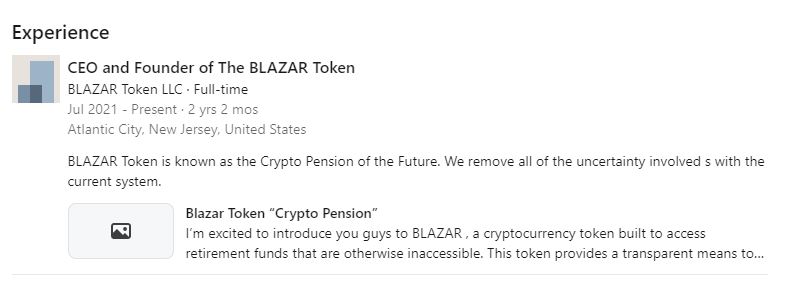A former state corrections officer is accused of orchestrating two different fraud schemes, including one that bilked first-responders out of more than $600,000.
John DeSalvo, 47, of Linwood, is charged with two counts each of wire fraud, securities fraud and money laundering.
“This defendant, a former New Jersey corrections officer, is alleged to have committed two brazen investment fraud schemes in which he falsely promised huge returns to obtain hundreds of thousands of dollars from unsuspecting investors,” U.S. Attorney Philip Sellinger said.
The Blazar Token was marketed as a "crypto pension" to police, fire personnel, EMTs and other first-responders, according to the charges.
Beginning in late 2021, DeSalvo allegedly used social media platforms to solicit Blazar investors claiming that Blazar was in the process of becoming, or was already, a securitized token approved by the Securities and Exchange Commission that could be purchased through payroll deductions and ACH transactions.
He also is accused of telling investors that Blazar had been approved for inclusion on several well-known cryptocurrency exchanges and guaranteed investors rates of return of more than 20 percent with “ZERO risk.”
Instead, DeSalvo used the more than $620,000 he got from more than 200 investors as his own personal bank account, according to the charges.
DeSalvo frequently used the funds for personal expenses, day-trading in various volatile cryptocurrencies and payments to prior investors in the manner of a Ponzi scheme, the charges claim.
He then sold off more than 41 billion of his own Blazar tokens in May 2022, causing the price of the token to drop precipitously. The value of Blazar never recovered, causing most investors to lose their entire investments.

DeSalvo's still-public LinkedIN page, where he lists himself as CEO and founder, says: "BLAZAR Token is known as the Crypto Pension of the Future. We remove all of the uncertainty involved with the current system."
"This office is committed to rooting out investment and securities fraud and protecting investors," Sellinger said. "By today’s charges, we intend to hold this defendant accountable for these alleged fraud schemes and prevent him from potentially victimizing anyone else.”
DeSalvo, who previously lived in Marmora, Cape May County, allegedly made another $100,000 from about 20 investors in Brokerage-1, an online trading platform.
“I have been averaging close to 1,200 percent over the last two years," he allegedly told investors. "I am in the top 1,000th percent in the world. That’s the truth, the return rates I have been averaging are so high that I have people throwing money at me to invest.”
After draining the investment group’s account, DeSalvo advised the investors that their funds had been lost due to poor market conditions and provided the investors with false trading records purporting to show the trading activity that DeSalvo engaged in on behalf of the investment group, the charges claim.
The counts of wire fraud carry a maximum potential penalty of 20 years in prison and a fine of $250,000. The counts of securities fraud carry a maximum potential penalty of 20 years in prison and a fine of $5 million. The counts of money laundering carry a maximum potential penalty of 20 years in prison and a fine of $500,000.
The U.S. Securities and Exchange Commission also filed a civil complaint against DeSalvo on Wednesday based on the same conduct.